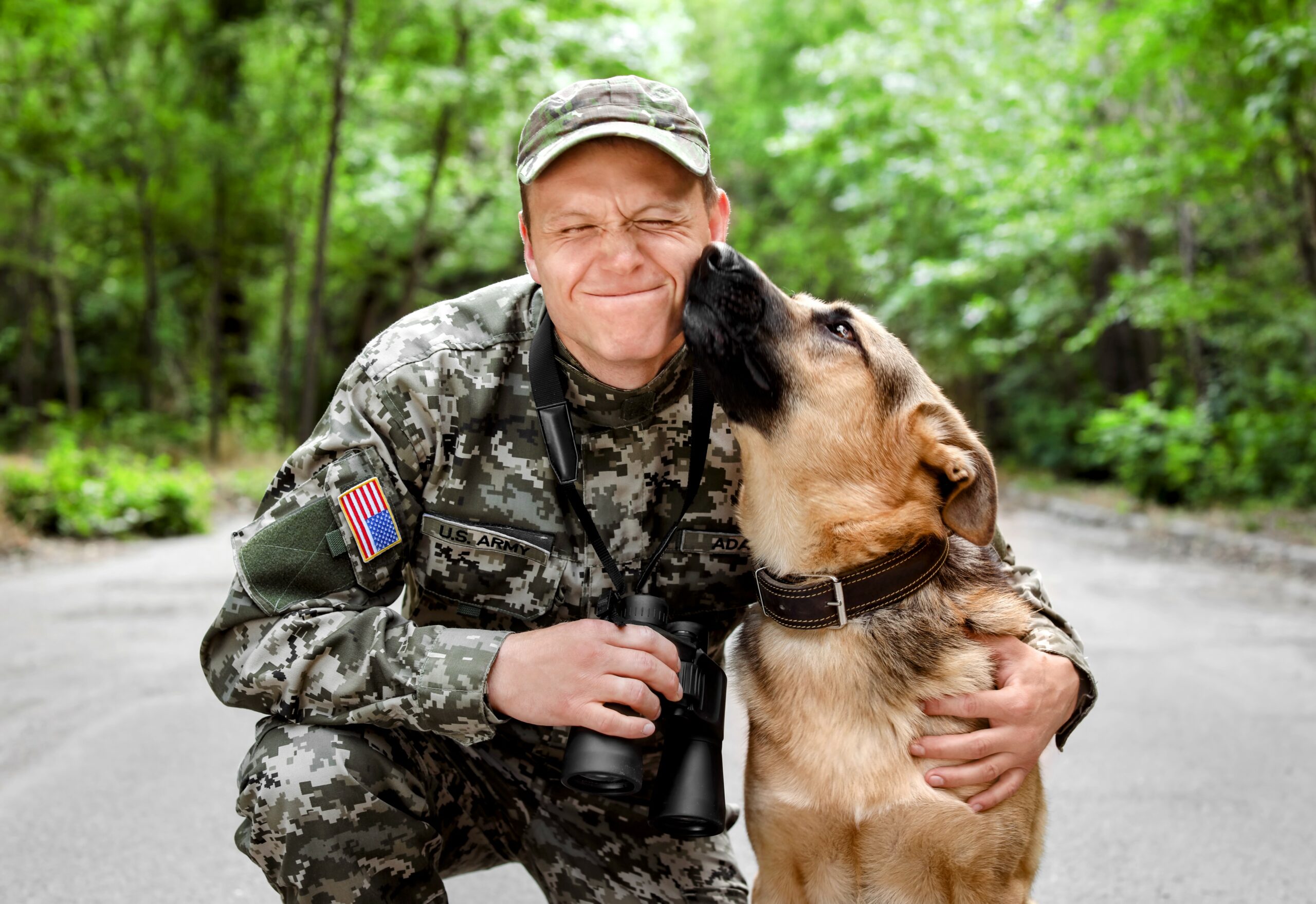- July 30, 2022
- No Comment
- 5 minutes read
Service dogs reduce symptoms of posttraumatic stress – Earth.com

Many war veterans and returning military personnel experience posttraumatic stress disorder (PTSD) after witnessing traumatic and horrifying events. Although this mental condition can be treated with psychotherapy and medications, the symptoms may persist for years. A growing number of sufferers also incorporate complementary interventions to try and alleviate the debilitating symptoms. One such intervention has involved the use of service dogs specially trained to perform tasks to help mitigate specific PTSD symptoms.
Previous qualitative and quantitative research has indeed shown that military veterans with service dogs experience less severe PTSD symptoms and a better quality of life than those who do not have service dogs. However, the mechanisms by which the dogs bring about these changes has not been investigated and is currently not understood. A new observational study led by Clare Jensen of Purdue University has sought to understand what it is about the service dogs, or the bond between dogs and handlers, that brings about the reduction in symptom severity.
Jensen and colleagues studied 82 military members or veterans and their service dogs, which had all been trained to alleviate PTSD symptoms. Some of the tasks that trained PTSD dogs carry out involve applying pressure to the handler during bouts of anxiety, nudging to disrupt flashbacks and waking the handler from nightmares. Dogs are also trained to warn the handler when a person approaches from behind, and handlers may command the dog to initiate a social contact (“make a friend”) with another person, thereby making social interactions easier to initiate.
The 82 veterans and their 82 dogs were selected by K9s for Warriors, a non-profit organization that provides trained PTSD service dogs to post-9/11 military members and veterans across the US at no cost. In the month before meeting with their new dogs, the people completed surveys about their demographics, personalities and mental health issues. The temperament of each dog was also recorded in detail. After pairing the military members and the dogs, a three-week training took place in which handlers were taught how to work with their dogs.
A subsequent survey was completed at the home of each handler, three months after the initial pairing. In addition to answering survey questions, the handlers were also assessed using observations of their interactions with their dogs. The data collected was used to evaluate the dog characteristics that best predicted positive mental health outcomes, to assess dog and human characteristics that best predicted a close handler-dog bond, and to explore potential mechanisms whereby mental health improvements occur.
The results of the study, published in the journal PLoS ONE, complement the growing evidence that partnership with a PTSD service dog can be effective for reducing symptoms and improving mental health among veterans with PTSD. Although most of the dog characteristics analyzed were not associated with better or worse veteran mental health outcomes, there was one exception. Dogs with lower levels of excitability were linked to both a decrease in severity of PTSD symptoms in handlers, and a closer partnership between handler and dog. Handlers attributed many of their mental health improvements to the calming effect of their dog.
The factors associated with better mental health outcomes included a close veteran-dog partnership (which was linked to lower dog excitability) and the perception by the handler that the dog’s care was easy. The researchers also found a link between worse depression and handlers that more frequently asked service dogs to initiate a social greeting. In addition, veterans who frequently asked their dogs to alert them to a human approaching from behind were more likely to have greater anxiety but less severe PTSD symptoms.
Further research will be needed to expand on these findings and potentially identify how the most suitable pairings between veterans and dogs can be achieved in future, such that the veterans benefit most from their relationships with their service dogs. In addition, the results may help determine how best to select and train future service dogs, for example by favoring calm individuals and training to reduce excitability.
“This study provides new information about how and why service dogs may improve mental health for some veterans with PTSD,” said Jensen. “We are especially grateful to the military veterans who made this possible by sharing their time and experiences with us.”
—
By Alison Bosman, Earth.com Staff Writer

